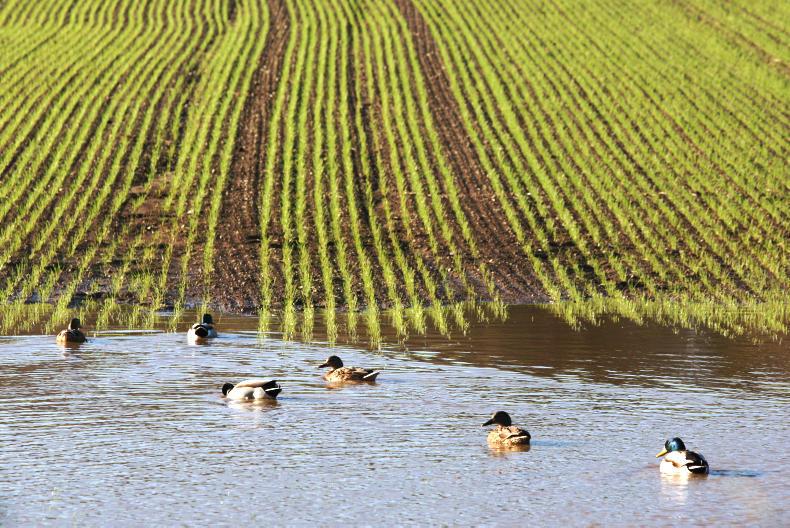After spreading like wildfire through Europe since the end of October, a case of the H5N8 strain of bird flu has reached Ireland, the Department of Agriculture confirmed on Friday.
The wild duck – a wigeon – was found alive but unable to fly in Wexford town on Wednesday 28 December.
The Health Protection Surveillance Centre has confirmed that although the H5N8 subtype can cause serious disease in poultry and other birds, no human infections with this virus have been reported anywhere in the world and therefore risk to humans is considered to be very low.
There is also no evidence that bird flu can be transmitted to humans through the consumption of properly cooked food such as poultry meat and eggs.
Legislation
After a number of cases were confirmed in the UK over the last two weeks, the Irish Government introduced a specific set of regulations that require the temporary housing of all poultry and other captive birds until further notice.
Over 500 cases of the H5N8 strain have been confirmed in EU member states since the end of October this year, starting with the discovery of the virus in a wild bird at Lake Fehér-to in Hungary on 28 October. Cases have also been reported in Austria, Poland, the Netherlands, Germany, Sweden, Greece and the UK.
The last case of bird flu in Ireland was identified in 2012, when a mild form of the highly pathogenic H5 strain was detected in pheasants on a premises near Clonakilty, Co Cork.
Advice
The Department has advised members of the public to report incidents where multiple wild birds (for example three or more of the same species and five or more of multiple species) of species other than common garden birds or pigeons, are found dead in the same location and at the same time to the DAFM Avian Influenza helpline (Tel: 076-106 4403) or to your local regional veterinary office.
More advice on handling dead wild birds can be found here.
Read more
Full coverage: bird flu
Bird flu: what is it and should I be worried?
After spreading like wildfire through Europe since the end of October, a case of the H5N8 strain of bird flu has reached Ireland, the Department of Agriculture confirmed on Friday.
The wild duck – a wigeon – was found alive but unable to fly in Wexford town on Wednesday 28 December.
The Health Protection Surveillance Centre has confirmed that although the H5N8 subtype can cause serious disease in poultry and other birds, no human infections with this virus have been reported anywhere in the world and therefore risk to humans is considered to be very low.
There is also no evidence that bird flu can be transmitted to humans through the consumption of properly cooked food such as poultry meat and eggs.
Legislation
After a number of cases were confirmed in the UK over the last two weeks, the Irish Government introduced a specific set of regulations that require the temporary housing of all poultry and other captive birds until further notice.
Over 500 cases of the H5N8 strain have been confirmed in EU member states since the end of October this year, starting with the discovery of the virus in a wild bird at Lake Fehér-to in Hungary on 28 October. Cases have also been reported in Austria, Poland, the Netherlands, Germany, Sweden, Greece and the UK.
The last case of bird flu in Ireland was identified in 2012, when a mild form of the highly pathogenic H5 strain was detected in pheasants on a premises near Clonakilty, Co Cork.
Advice
The Department has advised members of the public to report incidents where multiple wild birds (for example three or more of the same species and five or more of multiple species) of species other than common garden birds or pigeons, are found dead in the same location and at the same time to the DAFM Avian Influenza helpline (Tel: 076-106 4403) or to your local regional veterinary office.
More advice on handling dead wild birds can be found here.
Read more
Full coverage: bird flu
Bird flu: what is it and should I be worried?






 This is a subscriber-only article
This is a subscriber-only article











SHARING OPTIONS: